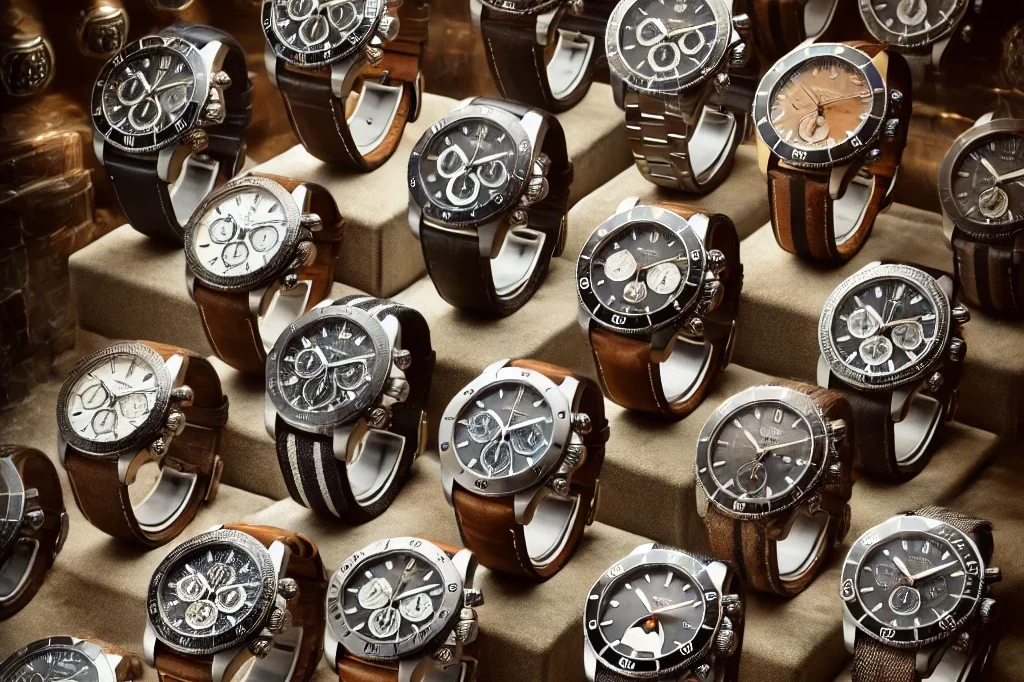A watch is more than just a time-telling device; it’s a statement, a reflection of personal style, and, for many, a treasured heirloom. Whether you’re a seasoned collector or looking to make your first significant investment, choosing the perfect watch requires understanding its craftsmanship, history, and suitability for your lifestyle. This guide unravels the intricate world of watches, offering expert insights to help you make an informed and timeless choice.
Choosing the Perfect Watch: What Does It Truly Mean?
When we talk about the perfect watch, we’re delving into more than aesthetics. A perfect watch is a harmonious blend of function, design, and durability. It aligns with your daily needs while expressing your unique identity. From casual enthusiasts to avid horologists, understanding this concept is essential before you step into the world of timepieces.
- Functionality: Will this watch serve as a daily wear piece, a formal accessory, or a sports companion?
- Design: Does the watch match your personal style—minimalistic, vintage, or bold?
- Durability: Can it withstand your lifestyle, whether office-based or adventure-filled?
Understanding Watch Movements: Quartz vs. Mechanical
At the heart of every timepiece lies its movement, the engine driving its precision. Knowing the difference between quartz and mechanical watches is fundamental to making an informed decision.
- Quartz Watches: Powered by a battery and quartz crystal, they’re known for their precision and affordability. They suit those seeking low-maintenance yet reliable timepieces.
- Mechanical Watches: These are marvels of engineering. Powered by intricate mechanisms, they exude craftsmanship. Options include manual winding or automatic, perfect for enthusiasts who appreciate tradition.
Each has its merits, and your choice depends on your priorities—precision or craftsmanship.
Materials Matter: Selecting the Right Watch Case and Strap
The material of your watch case and strap influences its durability, comfort, and aesthetics. Common materials include:
- Stainless Steel: Durable and versatile, ideal for daily wear.
- Titanium: Lightweight yet robust, suitable for active lifestyles.
- Ceramic: Scratch-resistant with a sleek finish, great for modern styles.
- Leather Straps: Perfect for formal settings, offering a classic look.
- Metal Bracelets: Durable and versatile for professional environments.
Understanding these materials ensures your watch suits your environment and preferences.
Sizing and Fit: How to Ensure Your Watch Looks Perfect on Your Wrist
The size and fit of a watch significantly impact its visual appeal and comfort. Here’s how to get it right:
- Case Diameter: Smaller wrists pair well with 36-40mm cases, while larger wrists accommodate 42mm or more.
- Case Thickness: A slimmer watch is ideal for formal wear, whereas bulkier designs suit casual settings.
- Strap Adjustment: The strap should sit snugly on your wrist without pinching or sliding.
A perfectly sized watch not only enhances your outfit but also feels natural on your wrist.
Iconic Watch Styles Every Enthusiast Should Know
Watches come in various styles, each suited for different occasions. Recognizing iconic designs helps in choosing the perfect watch for your needs.
- Dress Watches: Minimalistic and elegant, ideal for formal settings.
- Diver Watches: Built for underwater adventures with water resistance and luminous dials.
- Pilot Watches: Large, legible dials inspired by aviation.
- Field Watches: Rugged and durable, originally designed for military use.
- Smartwatches: Tech-driven timepieces blending fitness tracking with connectivity.
Explore these styles to discover which resonates with your lifestyle and preferences.
The Importance of Brand Heritage in Your Decision
A watch’s brand is more than a logo; it represents legacy, craftsmanship, and innovation. Renowned brands often hold decades, if not centuries, of expertise in watchmaking.
- Luxury Brands: Rolex, Patek Philippe, and Audemars Piguet signify status and timeless elegance.
- Tool Watch Brands: Seiko and Citizen are known for their affordability and durability.
- Avant-Garde Innovators: Brands like Hublot and Richard Mille push the boundaries of design and material science.
Choose a brand that aligns with your values and the story you want your watch to tell.
Features That Add Value to Your Watch
Watches can come with an array of features, or complications, that add functionality and character. Some notable examples include:
- Chronograph: Acts as a stopwatch, perfect for timing events.
- Date Display: Offers practicality for daily use.
- GMT Function: Allows tracking multiple time zones, ideal for travelers.
- Moon Phase: A poetic complication showing lunar cycles.
Understanding these features ensures you select a watch that enhances your lifestyle.
How to Care for Your Watch to Preserve Its Elegance
Once you’ve invested in a watch, maintaining it ensures longevity and elegance.
- Regular Servicing: Mechanical watches require periodic servicing to maintain accuracy.
- Cleaning: Use a microfiber cloth to wipe away dirt and moisture.
- Storage: Store your watch in a box or case to protect it from scratches and dust.
Proper care not only preserves the watch’s value but also extends its lifespan.
Conclusion
A watch is more than an accessory; it’s an extension of your personality and a testament to your taste. By understanding key elements like movement types, materials, iconic styles, and brand heritage, you equip yourself to make a choice that’s both functional and deeply personal.
Whether you’re selecting your first watch or adding to a growing collection, remember that choosing the perfect watch is a journey, not a destination. Each timepiece has a story to tell—ensure that the one you choose resonates with yours.

